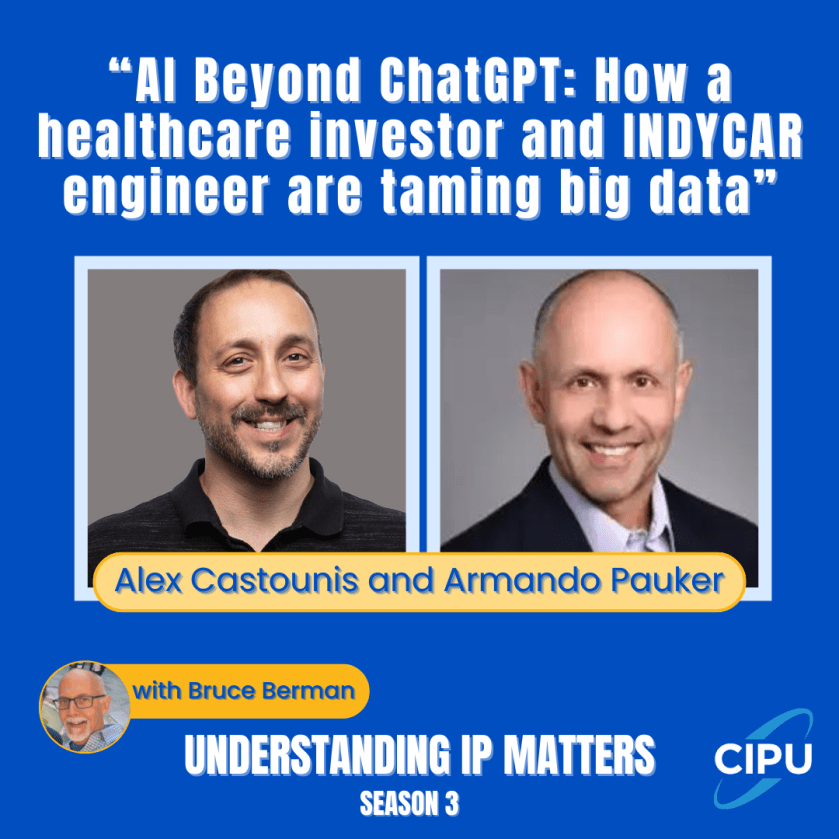The frontlines of AI today are comprised not only of computer programmers and generative AI platforms but of thousands of businesses, investors and users who are searching for more efficient ways of achieving goals.
Investors are refining their uses for AI and the IP rights associated with it. Healthcare and cybersecurity are among the industries attracting AI investors today, and open source strategies are increasingly complimenting proprietary ones. How this shakes out is yet to be determined.
Armando Pauker is General Partner and Co-Founder of Tensility Venture Partners, early-stage investors in AI, digital health and cybersecurity. A speaker and panelist at this years IP Awareness Summit in Chicago, he is joined on the season three “Understanding IP Matters” episode that dropped last week by this year’s IPAS keynote, Alex Castrounis.
Alex was an IndyCar racing engineer and data scientist whose is author of the popular book, “
Many Uses
“ChatGPT is just one example of how AI is being used by businesses,” writes Forbes columnist Madeleine Key in IPWatchdog.
“To unpack why and how different forms of artificial intelligence are being adopted by businesses and their impact on intellectual property rights, Bruce Berman hosts two innovative exponents of AI on the seventh episode of the third season of his podcast ‘Understanding IP Matters.'”
Highlights from the podcast include:
Bruce Berman: Armando, as an investor, what attracts you to AI today?
Armando Pauker: There are many things. Business intelligence is about really about making predictions and AI goes beyond that, from being predictive to prescriptive. That’s the next frontier….
We see within AI the ability to look at those things that humans have a hard time looking at and being able to look at the totality of potential answers. The nice thing about AI is that when it looks at a data set, it looks at all the strategies, all the potential outcomes.

It goes beyond human bias. Because, as humans, we kind of know what’s going to work and what’s not going to work. We put our efforts into what we think is going to work — but AI can free us from that and look at all of these things that we thought were not possible.
Bruce Berman: The lack of [data] transparency is troubling. Can anything be done to improve this?
Alex Castrounis: In many ways, it’s going to come down to is copyright laws and where they stand and whether or not they’re even updated enough to handle this AI thing that’s happening. And then secondly, what are the terms of use on these sites, right? Wikipedia is open, but other sites in their terms of use say, Hey, it’s not okay to scrape our data.”
*****
For those interested in attending the 7th IP Awareness Summit, go here. A 25% discount for IP CloseUp readers is still available. Space is limited.
Image source: http://www.ipawarenesssummit.com

